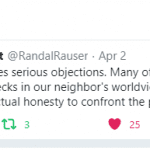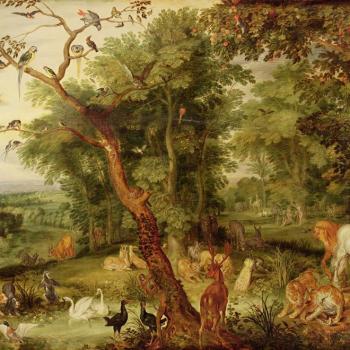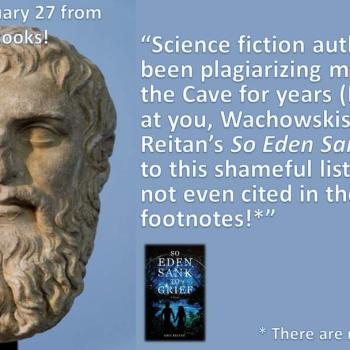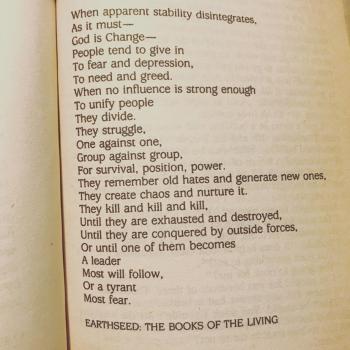As I prepare to teach my class on Religion and Science Fiction again, I’ve been thinking about a way to include some engagement with novel series by Octavia Butler and by Margaret Atwood that I’ve avoided having students read in their entirety lately, since there is so much other material and so many other topics that would have to be dropped in order to do so. Depth vs. breadth remains a perennial problem. But I have an idea and I’m interested in feedback on it. The last time I included Atwood, I just had students read The Year of the Flood from the Oryx and Crake trilogy, and it worked okay, for all the strangeness of dropping students into the middle of a trilogy. That second of the three novels has the hymns of the God’s Gardeners, a fictional religious group featured in the novels. I blogged about them previously. I am thinking of perhaps providing excerpts from the fictional scripture of Earthseed, the Books of the Living, and from the hymns of the God’s Gardeners, as reading. These could be among the assigned readings when the class focuses on the topic of fictional religions in the real world.
What do you think of this idea? I’m in two minds, to be honest. It is rather like trying to teach about Jediism without requiring viewing of at least some part of the Star Wars movies. But even there, however confusing it might be, one could just use an episode of Clone Wars. What can one do to provide a small but sufficient glimpse of Butler’s and Atwood’s fictional religions within their narrated fiction? Or is it better to not cover this topic than to try this and fail to do justice to the brilliance and achievement of these two authors?
Now that I think about it, I’ll have to revisit this topic soon and in the process also ask related questions about Dune. In the meantime, here are some other links related to this post:
David Gowler recently highlighted the relevance of Butler’s message viewed through the lens of his ongoing project about the reception of the Bible. On Butler’s own religious views, see the article from a few years ago “Her Eyes Weren’t Watching God.” Here’s a taste:
Butler’s atheism was never a rabid middle finger flipped at organized religion. She critiqued fundamentalism in Parable of the Talents by dramatizing the rise of a neo-fascist Christian movement that attacks Lauren’s community. But she never demonized faith. Instead, her empathetic brand of secularism calls for tolerance, long-term collaboration, and the embrace of multiculturalism.
From a recent article in Detroit News:
Alys Eve Weinbaum, a professor of English at the University of Washington, says Butler broke open a genre “dominated by white men and white readers.” She is now praised as a visionary who anticipated many of the issues in the news today, from the coronavirus to climate change to the election of President Donald Trump. In her 1998 novel “Parable of the Talents,” the right-wing Andrew Steele Jarret runs for president in 2032 with a message familiar to current readers.
“Jarret insists on being a throwback to some earlier, ‘simpler’ time. Now does not suit him. Religious tolerance does not suit him,” Butler wrote. “There was never such a time in this country. But these days when more half the people in the country can’t read at all, history is just one more vast unknown to them.”
Jarret’s campaign theme: “Help us to make America great again.”
“She (Butler) seems to have seen the real future coming in a way few other writers did,” says Gerry Caravan, an associate professor at Marquette University who is co-editing Butler’s work for the Library of America. “It’s hard not to read the books and think ‘How did she know?’”
See my review of the MaddAddam trilogy in Marginalia Review of Books:
https://marginalia.lareviewofbooks.org/james-mcgrath-on-margaret-atwoods-maddaddam-triology/
See too this post from last year on my blog:













